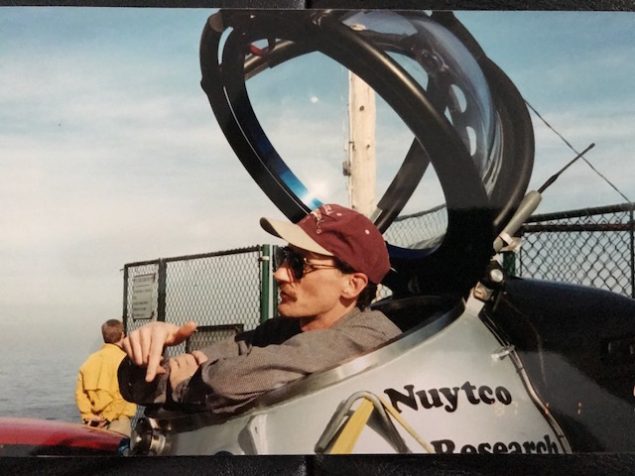
NOAA Retired
John McDonough served as the Senior Advisor on Advanced Technologies to NOAA’s Office of Marine and Aviation Operations (OMAO) from 2017 until his retirement in 2020. This included developing a framework and process to identify, develop, test, evaluate and transition advanced technologies that support the NOAA mission and were compatible with NOAA vessels and aircraft.
He joined the newly formed NOAA Office of Ocean Exploration as the Operations Coordinator in 2003 and became the office’s Deputy Director in 2005 where he planned and executed collaborative ocean exploration campaigns with federal agencies, non- profit organizations, academic institutions, and industry both nationally and internationally. He served as the office’s Director from 2007 to 2012 establishing a long- term strategic vision for a national Ocean Exploration program and the foundation under which the office continues to function today.
He worked extensively with OMAO throughout his tenure at OER and was engaged in several NOAA ship conversions, most notably the conversion of the USN Capable to NOAA Ship Okeanos Explorer, which continues to serve as the only federal vessel dedicated to exploring unknown and poorly known areas of the world’s oceans.
Earlier in his career he served as a physical scientist with NOAA’s National Ocean Service where he developed data and geographic information systems related to coastal and marine environments and developed tools and data products required by marine resource managers to make informed decisions. This included work on interagency efforts to establish a management plan for the Florida Keys National Marine Sanctuary and a Coastal Water Quality Protection Program for central California. He also served as the NOAA project coordinator for the five-year Sustainable Seas Expeditions – a collaboration between NOAA and the National Geographic Society to explore the system of NOAA National Marine Sanctuaries.
Among his many duties he was a member of the Senior Management Council for the NOAA Coral Reef Conservation Program; represented NOAA on the Executive Committee of the Interagency Extended Continental Shelf Mapping Task Force; established an ongoing partnership between NOAA, the Bureau of Ocean Energy Management, and the US Geological Survey to conduct baseline characterizations of previously unknown marine areas in the Gulf of Mexico and Mid-Atlantic Bight; and in collaboration with NOAA Fisheries and NOAA’s National Ocean Service helped establish the NOAA Deep Sea Coral Research and Technology Program.

